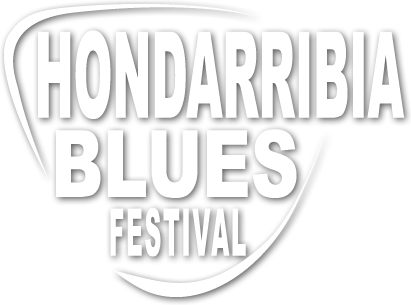 July 12-15 2018
July 12-15 2018
Shemekia Copeland

At an early age, Shemekia Copeland is already a force to keep in mind in the blues. She headlined big festivals such the Chicago Blues Festival and the B.B.King Festival. Moreover, she has taken part in numerous festivals around the world. She got Critics Choice Awards on both sides of the Atlantic (The New York Times and The Times of London) and she shared the stage with legends like Buddy Guy, B.B. King, Mick Jagger, and Eric Clapton. She has even performed at the White House for Obama President and his wife. Heir of the rich tradition of blues, following divas like Ruth Brown, Etta James and Koko Taylor,
Copeland gives the music a timeless power and an intense urgency. Her music comes from deep within her soul and from the streets where she grew up, surrounded by the everyday sounds of the city – street performers, gospel singers, radios, bands in local parks and much more.
Born in Harlem, New York, in 1979, Copeland actually came to her singing career slowly. Her father, the late Texas blues guitar legend Johnny Clyde Copeland, recognized his daughter’s talent early on. He always encouraged her to sing at home, and even brought her on stage to sing at Harlem’s famous Cotton Club when she was just eight. At the time, Shemekia’s embarrassment outweighed her desire to sing. But when she was fifteen and her father’s health began to fail, her outlook changed. “It was like a switch went off in my head, and I wanted to sing,” she says. “It became a want and a need. I had to do it.”
At only 19, Shemekia stepped out of her father’s shadow with the Alligator Records release of 1998 debut recording, Turn the Heat Up, and the critics praised. The Village Voice called her “nothing short of amazing,” while the Boston Globe proclaimed: “she roars with a hot intensity.” A year later, she appeared in the film Three To Tango, while her song “I Always Get My Man, was featured in the film Broken Hearts Club.
Her second album, Wicked, released in 2000, got three Handy Awards (Song of the Year, Blues Album of the Year, Contemporary Female Artist of the Year) and a GRAMMY nomination. Two years later, New Orleans R&B legend Dr. John took part to produce her third recording, Talking To Strangers (2002), which Vibe called “an harmonious blend of rock and cheeky ballads.”
Copeland released The Soul Truth in 2005. The album was produced by the legendary guitarist Steve Cropper Stax (who also played on the CD), and came with generous doses of blues, funk and Memphis-flavoured soul.
Never Going Back, her 2009 debut in Telarc, a division of Concord Music Group, captured Copeland at a crossroads on that artistic path. While Copeland will always remain loyal to her blues roots, Never Going Back took a more forward view, and in so doing pointed her music and her career in a new direction. Produced by Oliver Wood, guest artists included John Medeski, Marc Ribot and Chris Wood.
“I’ve had success in my career, and I’m happy with that,” she says. “But that doesn’t mean I don’t want to continue growing. In order not to stop growing, what you have to do is a new thing. I’m really proud to say I’m a blues singer, but that doesn’t mean that’s the only thing I’m capable of singing, or that’s the only style of music I’m capable of making.”
She adds: “I want to keep growing. My main aim when I started this was that I was going to do something different with this music, so that this music could evolve and grow. I got that idea from my father. He didn’t do the typical four-five blues. He went to Africa and worked with musicians from there. He was one of the first blues artists to do that. I want to be the same way. I want to be innovative with the blues.”
Copeland has just recorded a new album produced by Oliver Wood, which came out the 25th September 2012 in Telarc.